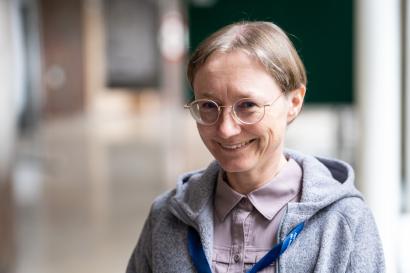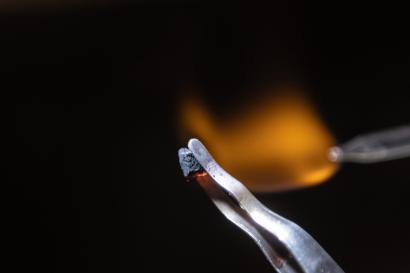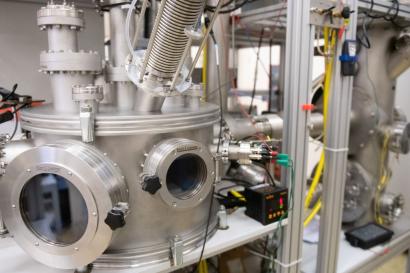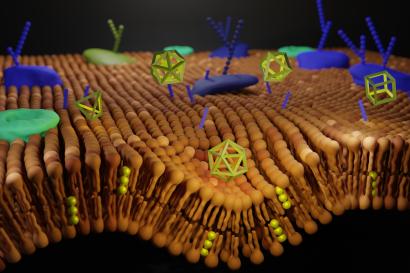Research
The power of Sun as a laboratory for fundamental physics
Our Universe is expanding faster and faster. What is the force behind it? Is it the fifth fundamental force predicted by some alternative theories of gravity? Scientists have chosen the Sun as their laboratory to find out.
I would love to fall inside a large black hole
Professor Veronika E. Hubeny, a leading expert on string theory and quantum gravity, says that rushing is not good for science, and might make us miss tremendous opportunities. We interviewed the theoretical physicist from the University of California on the occasion of GRAVITY@PRAGUE 2022.
A revolution in fire protection
A multidisciplinary team of physicists and chemists from the Institute of Physics of the Czech Academy of Sciences managed to create a graphene aerogel resistant to flames at a temperature of 1500 °C. A mere millimetre of the material is sufficient to shield such high temperatures. The new porous graphene aerogel temporarily resists various types of high-temperature flames, including an extremely reactive hydrogen flame
Thanks to Czech scientists, ecological production of photovoltaic systems in Europe is within striking distance
Thanks to the PILATUS project, there will be three pilot lines built in Europe by 2025, covering the entire production cycle of innovative silicon solar panels. Special technologies with contacts on the bottom side will allow solar cells to convert energy with efficiency higher than 26%. In the production of this photovoltaic "Ferrari", the experts also want to minimize its CO2 footprint. In the project, a team from the Institute of Physics of the Czech Academy of Sciences under the leadership of Martin Ledinský will be involved as well.
Transmission optical elements for banknote and document security using selective deposition of thin film structure
The subject of the present project is to develop completely new optical security features that can be used on modern banknotes and plastic documents with transparent areas.
Two researchers from the Institute of Physics have become Doctors of Science
Two diplomas confirming the highest achievable qualification in a scientist’s career – Doctor of Sciences – has been handed over by the President of the Czech Academy of Sciences Eva Zažímalová to two employees from the Institute of Physics: RNDr. Stanislav Kamba, CSc., DSc., and Mgr. Marek Taševský, Ph.D., DSc.
DNA nanotechnology on the rise
Scientists from the Laboratory of Biophysics contributed to the field of DNA nanotechnology with a recent systematic analysis. The authors, led by Oleg Lunov, have summarized the current state of knowledge about the interactions of DNA nanostructures (DN) with cells and identified the key challenges.








